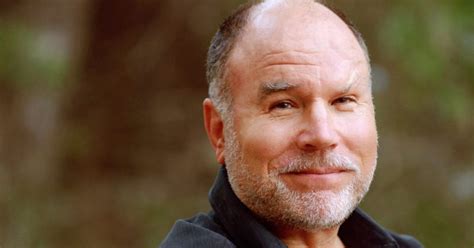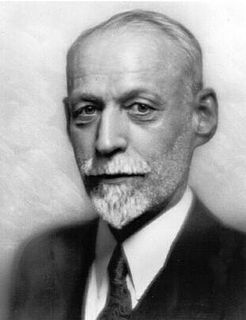A Quote by Michel de Montaigne
Travelling through the world produces a marvellous clarity in the judgment of men. We are all of us confined and enclosed within ourselves, and see no farther than the end of our nose.
Related Quotes
Traveling through the world produces a marvelous clarity in the judgment of men. We are all of us confined and enclosed within ourselves, and see no farther than the end of our nose. This great world is a mirror where we must see ourselves in order to know ourselves. There are so many different tempers, so many different points of view, judgments, opinions, laws and customs to teach us to judge wisely on our own, and to teach our judgment to recognize its imperfection and natural weakness.
It is possible to move through the drama of our lives without believing so earnestly in the character that we play. That we take ourselves so seriously, that we are so absurdly important in our own minds, is a problem for us. We feel justified in being annoyed with everything. We feel justified in denigrating ourselves or in feeling that we are more clever than other people. Self-importance hurts us, limiting us to the narrow world of our likes and dislikes. We end up bored to death with ourselves and our world. We end up never satisfied.
We need to see, and agree that what we seek already lives within us, and we within it. Now we know our one great task: watch for whatever promises us freedom, and then quietly, consciously refuse to see ourselves through the eyes of what we know is incomplete. Then we live wholeness itself, instead of spending our lives looking for it.
We talk about spreading democracy and freedom all over the world, but they are to us words rather than conditions. We haven't even got them here in America, and the farther we get into this war the farther we get away from democracy and freedom. Where is it leading us to, and when will it end? The war might stop this winter, but that is improbable. It may go on for fifty years or more. That also is improbable. The elements are too conflicting and confused to form any accurate judgment of its length. There may be a series of wars, one after another, going on indefinitely.
When I consider the narrow limits within which our active and inquiring faculties are confined; when I see how all our energies are wasted in providing for mere necessities, which again have no further end than to prolong a wretched existence; and then that all our satisfaction concerning certain subjects of investigation ends in nothing better than a passive resignation... when I consider all this... I am silent.
Things and persons appear to us according to the light we throw upon them from our own minds. How unconsciously we judge others by the light that is within ourselves, condemning or approving them by our own conception of right and wrong, honor and dishonor! We show by our judgment just what the light within us is.
We are thankful for these and all the good things of life. We recognize that they are a part of our common heritage and come to us through the efforts of our brothers and sisters the world over. What we desire for ourselves, we wish for all. To this end, may we take our share in the world's work and the world's struggles.
The end comes when we no longer talk with ourselves. It is the end of genuine thinking and the beginning of the final loneliness. The remarkable thing is that the cessation of the inner dialogue marks also the end of our concern with the world around us. It is as if we noted the world and think about it only when we have to report it to ourselves.
God never gives up on us no matter how hard we try to get ourselves loose. God does not let go. That doesn't mean he controls everything we do. It doesn't mean he puts a bridle on us and leads us by the nose. He gives each one of us free will and common sense and a spirit that can communicate with his. When we go through afflictions, he allows us to choose our response. But no matter what our response may be, he sticks around to the bitter end.
In a world in which we are exposed to more information, more options, more philosophies, more perspectives than ever before, in which we must choose the values by which we will live (rather than unquestioningly follow some tradition for no better reason than that our own parents did), we need to be willing to stand on our own judgment and trust our own intelligence-to look at the world through our own eyes-to chart our course and think through how to achieve the future we want, to commit ourselves to continuous questioning and learning-to be, in a word, self-responsible.
We certainly do not forget you as soon as you forget us. It is, perhaps, our fate rather than our merit. We cannot help ourselves. We live at home, quiet, confined, and our feelings prey upon us. You are forced on exertion. You have always a profession, pursuits, business of some sort or other, to take you back into the world immediately, and continual occupation and change soon weaken impressions.
However we may flatter ourselves to the contrary, our friends think no higher of us than the world do. They see us through the jaundiced or distrustful eyes of others. They may know better, but their feelings are governed by popular prejudice. Nay, they are more shy of us (when under a cloud) than even strangers; for we involve them in a common disgrace, or compel them to embroil themselves in continual quarrels and disputes in our defense.
When we form heart-centered beliefs within our bodies, in the language of physics we're creating the electrical and magnetic expression of them as waves of energy, which aren't confined to our hearts or limited by the physical barrier of our skin and bones. So clearly we're speaking to the world around us in each moment of every day through a language that has no words: the belief-waves of our hearts.









































